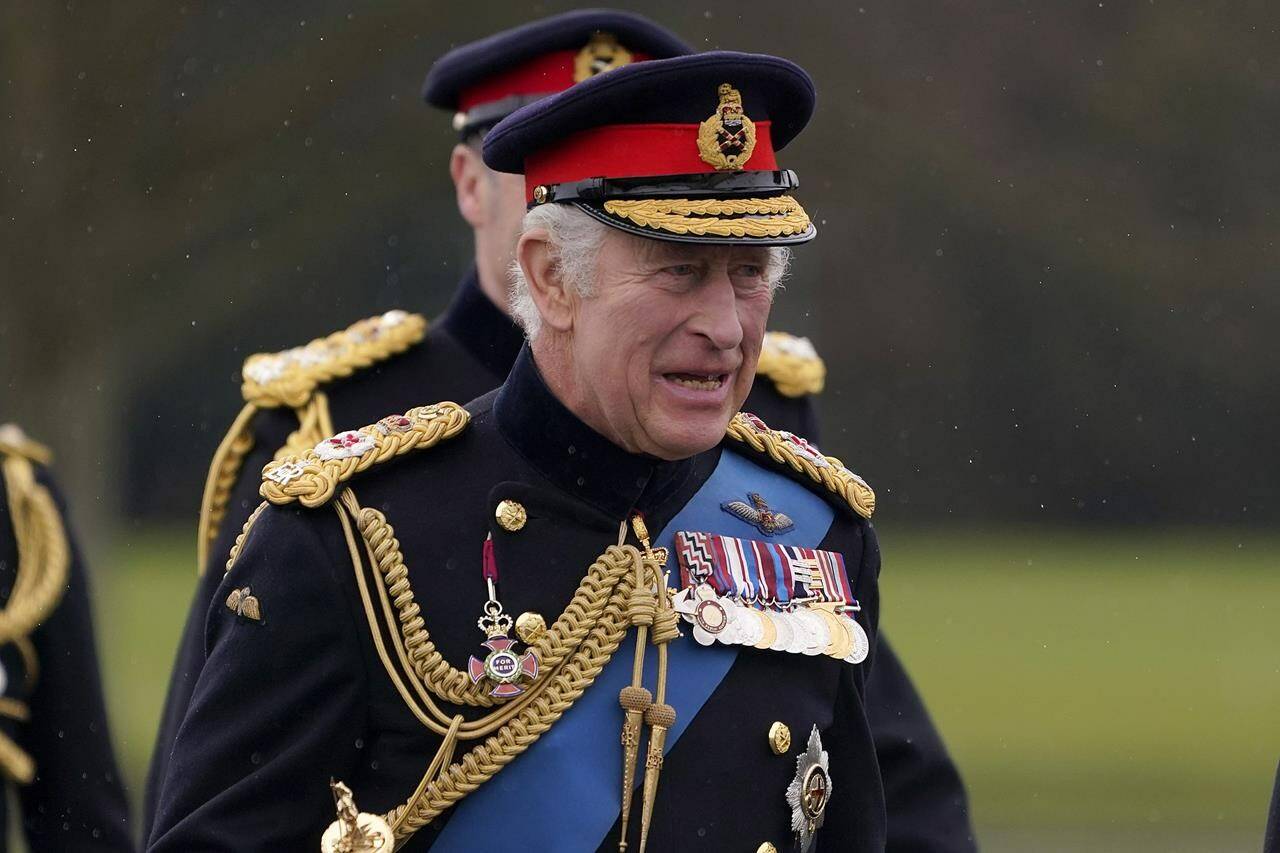King Charles III’s first months on the throne have shown he’s a monarch who will take an active role in different causes and is ready to engage with the public, royal experts say, but he still has work to do to win over a skeptical Canadian public.
Nathan Tidridge, the author of a book about Canada’s constitutional monarchy and vice-president of the Institute for the Study of the Crown in Canada, says Charles thus far appears to be a more “active and engaged” ruler than his late mother, Queen Elizabeth II.
As examples, he cites the King’s decision to host a Buckingham Palace reception for key players ahead of the COP27 climate summit in Egypt, and the palace’s direct request to Australia that it include Indigenous people in its delegation attending his May 6 coronation.
Tidridge believes the late queen, in contrast, kept more of a distance.
“There was a removed sense (with Queen Elizabeth), where with Charles we’re not seeing that,” Tidridge said in a phone interview from Waterdown, Ont. “He’s more engaged in different spheres, especially the spheres he’s identified as really important to him.”
Carolyn Harris, a historian and commentator on the Royal Family, says King Charles appears to be working hard to connect with the public by interacting with people from all walks of life.
She said this effort is also evident on the royal social media accounts, where staff have responded to public questions about the coronation and published a behind-the-scenes video of Charles and his wife Camilla, the Queen Consort, reviewing notes on a train during a recent official visit to Germany.
“This very early part of this reign, we see efforts to make his role more accessible,” she said.
These efforts extend to the coronation, which is expected to be a less lavish affair than the 1953 event for his mother. It’s expected to feature a shorter parade and a guest list that emphasizes community leaders, representatives of charitable organizations and veterans rather than “as many British aristocrats as possible,” Harris said.
Canadians, however, appear to be unmoved by the new monarch’s efforts — if they’ve noticed them at all.
Polling released in March by marketing firm Leger found a majority of Canadians surveyed, at 67 per cent, were indifferent to the King, compared to only 12 per cent who said it was good that he was monarch.
Just 13 per cent of those surveyed said they felt a personal attachment to the monarchy, and more than half said it’s the right time for the country to reconsider its ties with the institution.
READ ALSO: Canadians uninterested in King Charles’ coronation, British monarchy, survey suggests
Harris says Canadians remained attached to the queen until her death on Sept. 8, 2022, seeing her as a figure of stability. Charles, on the other hand, has previously courted controversy with the tumultuous public breakup with his first wife, Diana, the Princess of Wales. More recently there have been tensions with his youngest son, Prince Harry, who recently exposed the family’s dirty laundry in a tell-all book.
She said Charles and Camilla, along with Prince William and his wife Kate, have been well-received on visits to Canada, including a three-day tour last May that brought Charles and Camilla to Newfoundland, Ottawa and the Northwest Territories. But the King’s desire for a “slimmed-down” monarchy with fewer working members means such visits may be shorter and less frequent.
Tidridge notes the King’s ability to connect with the Canadian public depends on the federal government.
“His footprint in Canada, his presence in Canada — the gatekeeper to the presence is actually the Prime Minister’s Office,” he said.
Under Canada’s constitutional setup, he said, the sovereign acts under the advice of an elected representative, meaning he can’t visit Canada or take a significant action — such as issuing an apology to Indigenous people for their treatment under the Crown — without the approval of the PMO.
And both Tidridge and Harris believe Ottawa has not made coronation celebrations a priority. With the coronation less than two weeks away, the federal government had yet to announce the makeup of its delegation or plans for a celebration on Canadian soil, and there has been little buzz around the event.
While the reasons for this are unclear, Tidridge believes it might reflect a desire to avoid the thorny conversations happening about the role the Crown has played in colonialism and imperialism.
“The easiest thing to do is to not have the discussion whatsoever and just kind of hope that it passes, and I honestly think that is the policy that’s being pursued right now,” he said.
But he firmly believes Charles could connect with Canadians if given a chance. He says a longer tour of Canada, in contrast with last year’s three-day “whistle stop,” would go a long way towards highlighting the values the King shares with Canadians, including his environmentalism, commitment to preservation of built and natural environments, and commitment to working with Indigenous communities.
“If ever there was a figure that echoes the kind of values that Canada stands for, it’s really King Charles,” he said.
Morgan Lowrie, The Canadian Press

